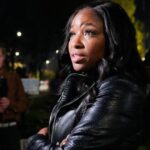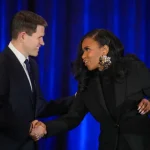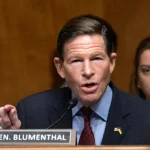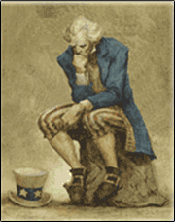
–>
March 7, 2023
A few weeks back I went online to RSBN to tune into the solemn and yet very enlightening funeral for Lynette “Diamond” Hardaway of Diamond and Silk fame. The funeral expenses were paid for entirely by Donald J. Trump, and the former President also attended the funeral, sitting alongside the Hardaway family.
‘); googletag.cmd.push(function () { googletag.display(‘div-gpt-ad-1609268089992-0’); }); }
I discovered that Silk possessed a very commanding presence of her own. While being somewhat eclipsed by the presence of her more animated Irish-twin, Diamond, it was evident that she could handily proceed with the Diamond and Silk brand in Diamond’s absence. I also learned a great deal more about the rich history of the Hardaway clan.
The closing speaker was of course, Donald J. Trump. He spoke about getting to know the Hardaway family, the Silk that he realized he didn’t know, and his commitment to addressing Black concerns.
That was deemed most interesting in the President’s speech was when he humbly revealed that he didn’t know how to address us…. Black people.
‘); googletag.cmd.push(function () { googletag.display(‘div-gpt-ad-1609270365559-0’); }); }
At around the 3 hour and 50 minute mark the President reveals to the attendees that he always felt ignorant with regard to how to address the Black community.
“I always used to ask — what do you like better — African American?… Black? You know there are many different terms. They said “We like Black” — because I was always saying “African American.”
Upon hearing this revelation, I could not help but admire his willingness to admit that he didn’t know, as well having the humility to ask. I’d never heard a politician ask before. This is what sets Donald Trump apart from politicians. He is not a politician. He has offered himself to Americans as a man of the people, and in keeping with that persona, he admitted that he just didn’t know. And how could he know? After all, in over a rather condensed period of time, we’d gone from “Colored” to “Negro” to “Black” to “African American.” I’d be confused too if I weren’t Black.
The truth of the matter is that as a Black woman in her sixties, I have never in my life — not once — heard a Black person refer to another Black person as “African American.” It simply isn’t a part of our common, day-to-day vernacular. If a Black person is telling a story about the guy at the outdoor produce stand, the Black person on the listening end might ask… “Which one… the Black guy?”
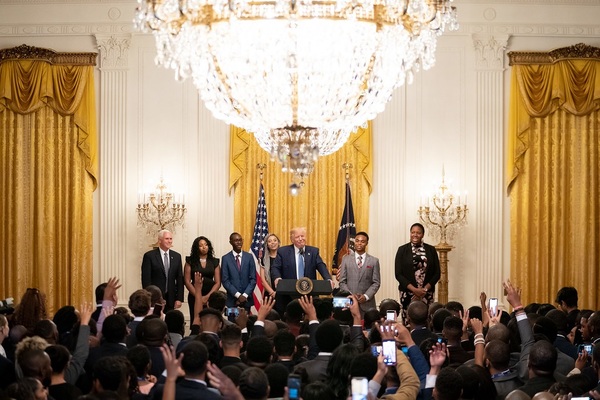 He is not going to ask, “Which one, the African American guy?”
He is not going to ask, “Which one, the African American guy?”
Moreover, when engaging Black people, I’ve never heard any other ethnic group refer to us as anything other than “Black.” It’s quite acceptable, and I’ve never heard anyone protest being referred to as such, as it relates to ethnicity.
‘); googletag.cmd.push(function () { googletag.display(‘div-gpt-ad-1609268078422-0’); }); } if (publir_show_ads) { document.write(“
So again, the White friend on the listening end is likely to respond in kind…
“Which one… the Black guy?”
The question now becomes, where did this come from? Who ushered in the misnomer that “African American” was what the masses of Blacks preferred to be addressed as?
The answer to that question would be the Reverend Jesse Jackson.
I remember this quite clearly in the 1980s, but to validate my memory I’ll cite a 1989 article from the New York Times. This article reports on Jesse Jackson’s movement to refer to Blacks as “African Americans.” The article effectually reports that:
“Some say they do not identify with Africa and resent prominent Blacks telling them what to be called.”
Therein lies a truth that has become evident in the age of the 2023. I am personally not averse to identifying with the continent of Africa, however, I found myself vexed by Jackson’s misguided, if not high-minded and authoritative, attempt to speak for us. I don’t even recall Jackson ever asking us what we wanted. In his highness, he simply ran with and projected his own desires.
What ultimately ensued was a journalistic colloquialism that was never in sync with grassroot Blacks. This vernacular ushered in by Jackson, has become the standard by which to refer to us on television, in print media, and in academia. It was not something that we asked for, and subsequently, we never adopted it. To be quite frank, I think it’s high time that it went away. As easily as the term Negro, and colored vanished from our reading materials, the same can be accomplished with the dated and ultimately rejected byword;African American. Most of us prefer to be called Black. I personally adore the word. I consider it abbreviatedly powerful. In the end, the people have already proven that Jesse Jackson was incorrect in his assertions.
I applaud President Trump for admitting that he needed to ask because he wasn’t sure. It was refreshing. He also admitted to pondering if he should shed tears at the funeral if he felt it welling up in his spirit. But he concluded that the media would have a field day with it. What this tells me was that crying may have indeed been in his spirit after the death of Diamond, and perhaps he may have done so in private.
The more I see of President Trump, the more evident it becomes that he is not a manufactured automaton telling the people what they want to hear, and doing otherwise. He has profound moments of humility. He is listening to us. He seeks to execute change. He seeks to understand, and not render himself foolish or self-absorbed.
Thank you for asking, Mr. President. We prefer Black.
Image: White House
<!– if(page_width_onload <= 479) { document.write("
“); googletag.cmd.push(function() { googletag.display(‘div-gpt-ad-1345489840937-4’); }); } –> If you experience technical problems, please write to [email protected]
FOLLOW US ON
<!–
–>
<!– _qoptions={ qacct:”p-9bKF-NgTuSFM6″ }; ![]() –> <!—-> <!– var addthis_share = { email_template: “new_template” } –>
–> <!—-> <!– var addthis_share = { email_template: “new_template” } –>


